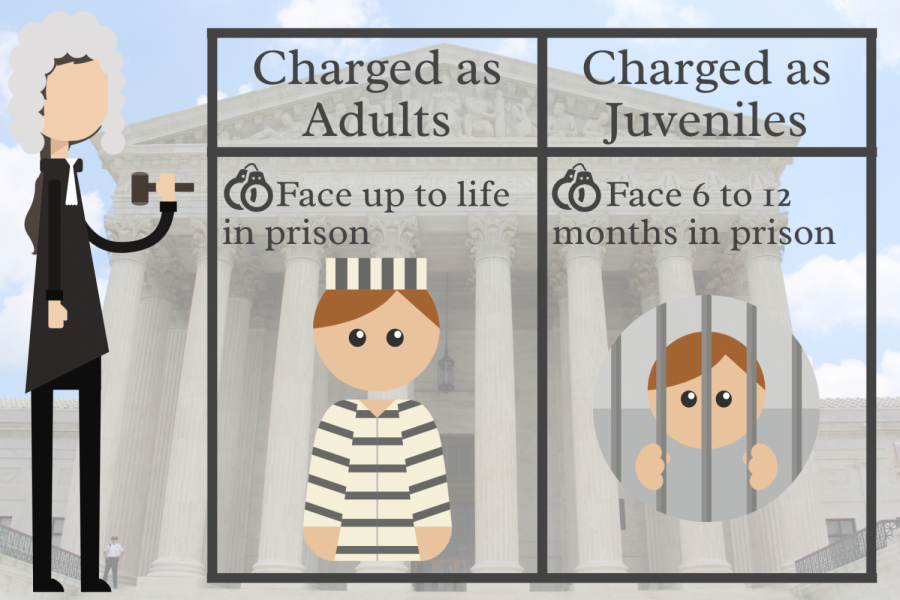Charging the Damascus defendants as adults is a mistake
March 13, 2019
Warning: this article contains graphic descriptions of sexual assault.
Last November, five junior varsity football players from Damascus High School allegedly raped younger teammates in what the media and the school district have called a hazing incident.
Court documents charge that the five 15-year-old JV players sought out four freshman players, held them down and assaulted one after another with a broomstick.
Maryland law dictates that children 14 and older charged with a crime punishable by life imprisonment are tried as adults. As such, four of the students were initially charged as adults with four counts of rape, attempted rape and conspiracy to commit rape, while the fifth was charged as a juvenile.
Montgomery County Circuit Court Judge Steven Salant moved two of the defendants down to juvenile court Nov. 22, citing their age and the circumstances of the case.
Moving two of the students down set a precedent, making it likely that the other two defendants still charged as adults will also be moved to juvenile court. This is a positive development. When these students appear in court on March 14 and March 19, the judge should charge them as juveniles.
There is no contesting that the crimes these students allegedly committed are horrific. But they are juveniles and should be treated as such. Juveniles are less mentally developed than adults and far more susceptible to peer pressure. In fact, peer influence is the strongest predictor of delinquent behavior in young adolescents. The effects of peer influence taper off as an individual grows older, but until their mid-20s, people’s brains are still not fully developed, Derek Iwamoto of the University of Maryland said.
This sort of underdevelopment is evident in the case. During their sentencing hearings, both of the students that moved down to juvenile court claimed that “broomings” are a tradition of Damascus football. This claim is unconfirmed, and even if it was true, it wouldn’t justify their crime. But it does reveal that the defendants are easily impressionable, subject to peer pressure and perhaps victims of sexual assault themselves—all of which make them better suited for juvenile court than adult court.
Charging the students as juveniles not only means they will receive lighter sentences—for a serious crime, juvenile detentions can range from six months to a year, says Eric Solomon, Director of Communications for the Maryland Department of Juvenile Services—but also puts the students in a better environment to help them get back on the right track.
In fact, detention is based mostly on need rather than punishment. Children are detained to ensure that they do not commit a crime again and that they receive their treatment. Accordingly, the juvenile justice system is more focused on rehabilitation than punishment. The Department of Juvenile Services offers anger management, sexual abuse therapy and traditional therapy, as well as other kinds of behavioral modification treatments that traditional adult prisons do not have. Furthermore, juveniles continue their education while they’re receiving their treatment, says Solomon.
This is especially important for children, who are still learning and growing.
Ultimately, the American Bar Association finds that children sentenced in juvenile court have much lower prison return rates and better outcomes than those sentenced in adult court. Once out of jail, children stay out.
Some argue that the students should be charged as adults in accordance with current Maryland law and the horrific nature of their crime. But this choice would overlook the fact that children are fundamentally incapable of an adult’s high level decision-making, and an adult sentencing would eliminate any chance for these students to turn their lives around and become productive members of society.
The remaining two defendants charged as adults have their trials March 14 and 19. They’ll appear before Judge Salant, the same judge who bumped the two other defendants down to juvenile court. For the sake of justice and consistency, he should do the same in these two trials.








